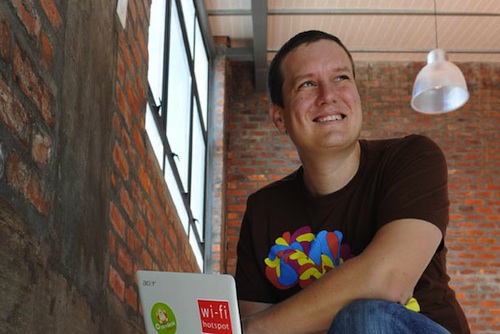
Skyrove, a specialist wireless hotspot company, will launch an audacious bid for national radio frequency spectrum and, if it gets it, it plans to build a network to take on the country’s incumbent mobile operators.
TechCentral can reveal exclusively that the company, run by CEO Henk Kleynhans, plans to participate in an auction for national radio frequency in the 2,6GHz band.
The auction, the first of its kind in SA, is set to take place in the next few months and involves spectrum at both 2,6GHz and 3,5GHz. It’s expected that the spectrum will be used to provide broadband access using third- and, later, fourth-generation wireless technologies.
Skyrove’s shareholders include venture capital firm 4Di Capital, which is ultimately owned by Reinet Investments (formerly Richemont), led by billionaire businessman Johann Rupert. Another shareholder is well-known East London-born Internet entrepreneur Vinny Lingham, the man behind fast-growing international website Yola.com.
Skyrove has built technology that allows anyone to set up a Wi-Fi hotspot and earn an income by sharing their Internet access with others.
But now Kleynhans wants to take his business to the national stage, and thinks he has a model that will allow smaller players in the market to take on the giant operators in the industry.
Unlike other companies that are expected to bid for the spectrum — the mobile operators and larger Internet service providers are likely to be keen participants in the auction – Skyrove plans to share its infrastructure with other industry players if it wins the bid.
“It is bizarre to think there should be only four service providers for 4G services when there are more than 500 licensed service providers in the country,” says Kleynhans.
“Skyrove will build a nationwide mobile broadband network, starting in urban areas, and will share the infrastructure with these service providers so they can provide 4G services, including telephony and video-on-demand.”
The plan, says Kleynhans, is to sell the services directly to established Internet service providers in bulk and at wholesale prices. “We will not market directly to consumers and we don’t need to sign up millions of end-user customers ourselves before breaking even.”
Kleynhans says he can’t say yet who the company’s financial backers are. But whoever stumps up the cash will need deep pockets. Just participating in the 2,6GHz auction will cost R750 000, though this money is refundable. There’s also a nonrefundable application fee of R70 000.
Of course, if the big incumbent operators take part in the auction, which they’re expected to, the bidding could quickly become too rich for many participants.
Big operators, including Vodacom, have suggested the spectrum that’s up for grabs should go to companies that have the financial wherewithal to build national networks.
But Kleynhans says they’re being disingenuous.
“It’s somewhat analogous to Encyclopaedia Britannica arguing that no-one could replicate what they’d done because they were ‘so big already’,” he says.
“Just as anyone with an Internet connection could contribute to Wikipedia, now anyone with a telecoms service licence will have open access to a platform on which they can provide innovative new services.”
By selling access to the platform to other telecoms service providers, rather than trying to sell services directly to end-user consumers, Kleynhans says Skyrove will be able to regain its investment in infrastructure much faster.
“At the same time, because the infrastructure is being shared, service providers will pay much less than they would have if they built their own infrastructure or tried to build services on the incumbents’ networks.”
Kleynhans says Skyrove hasn’t yet decided which technology to adopt, though the company is keen on deploying 4G rather than 3G services using either WiMax or “long-term evolution”, the successor to the 3G networks operated by Vodacom and MTN. — Duncan McLeod, TechCentral
- Subscribe to our free daily newsletter
- Follow us on Twitter or on Facebook




